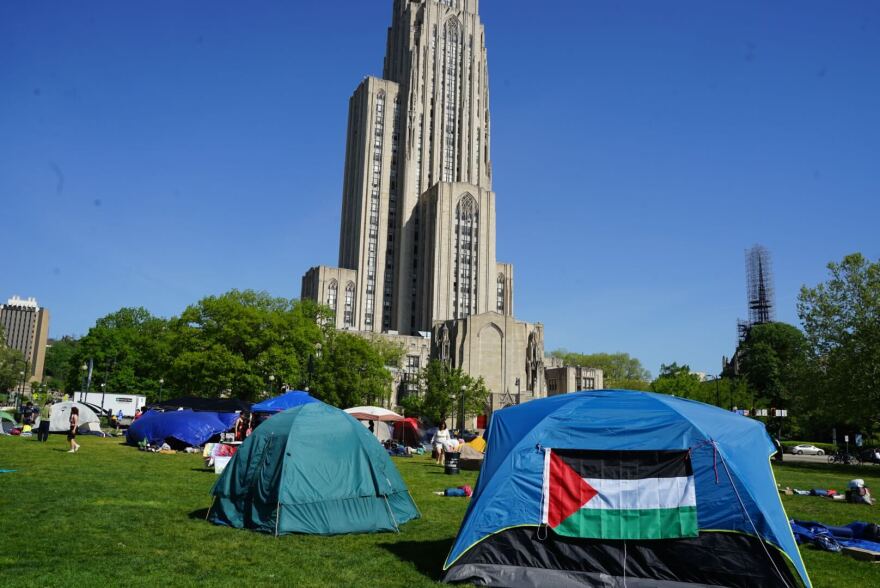Pittsburgh Bureau of Police Chief Larry Scirotto said a pro-Palestine weeklong protest at Schenley Plaza went “as well as it could have.”
The demonstration to oppose the war in Gaza lasted nearly a week. It started on Tuesday as a sit-in outside of the Cathedral of Learning before organizers agreed to move the encampment to the city-owned parklet between the Hillman Library and the Carnegie Museum complex. Protestors called on University of Pittsburgh officials to disclose any investments in companies or institutions that have supported Israel in its war with Hamas, and to divest any holdings tied to Israel. (Pitt is among a group of large universities whose investments can be opaque.)
Campus protests in other cities have drawn national attention as conflict flared up between protesters, university officials and law enforcement. But the situation in Oakland was far less charged, with arrests limited to an incident Sunday in which University of Pittsburgh Police took two protestors into custody during a demonstration. Both were charged with misdemeanor trespassing: Pitt officials confirmed that one was a student.
But city police themselves did not make any arrests, Scirotto said Tuesday, adding that they were there in a “supportive” capacity to back up university police.
Scirotto credited conversations between organizers, city officials and the university. During those talks, police agreed to let the protest continue through Monday provided protesters did not engage in property destruction, violence, or antisemitic behavior, he said. Protesters also agreed not to interrupt Pitt’s commencement ceremony, which took place Sunday.
“There were honest brokers at the table, from our side, from the organizer side, to ensure that they are and were able to peacefully demonstrate on city property and in a timely manner that we could support that wasn't overly intrusive to city operations,” Scirotto said.
“As long as they were following the conditions and didn't change them in any way, there was no reason for the Bureau to change its approach in the manner in which we police, or in the manner in which we engaged.”
Organizers with the Pitt Divest Coalition disputed that characterization Tuesday evening.
“We would not define our conversations with the police as ‘collaborative,’ but instead as negotiations in order to keep the people at the encampment safe,” the group said in an email to WESA. “Our impression is that while the police did not enter the encampment, their presence was very high and kept many people on high alert for the entirety of the encampment. We do not believe they were there to protect us, but rather to ensure we did not grow (which we did).
“We were prepared to occupy the space in Schenley Plaza whether or not the mayor and police force approved of us doing so,” the group added. “We believe they made a wise PR move in allowing us to stay, so now it is time for us to move forward and find new ways to apply pressure to the city and university.”
Scirotto called the situation an opportunity to “set the example for the country, especially when we started to look around and see what was happening on other campuses across the nation.”
Pitt did not respond to a request for comment regarding administrators’ opinions on the protests.













